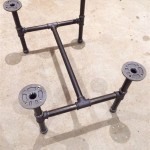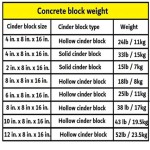How to Install Patio Pavers: A Step-by-Step Guide
Installing patio pavers can be a rewarding DIY project that adds value and beauty to your outdoor space. Here are the essential steps involved in the process:
1. Planning and Preparation
Start by measuring the area where you want to install the pavers and determining the number and type of pavers you need. Choose pavers that complement your home's style and withstand weather conditions. Create a layout plan to arrange the pavers and establish a slope for water drainage.
2. Excavating and Leveling
Excavate the area to the desired depth, typically 6-8 inches below the finished surface. Remove any existing vegetation, soil, or debris. Compact the underlying soil using a tamper or plate compactor and level it using a screed or straight edge.
3. Installing the Base
Spread a layer of compacted crushed stone, gravel, or sand as a base for the pavers. The thickness of the base will depend on the soil conditions and the weight of the pavers. Compact the base thoroughly using a plate compactor.
4. Laying the Pavers
Start laying the pavers from the lowest point and work your way up. Use a rubber mallet or tamper to gently tap them into place, ensuring they are level and evenly spaced. Use a level to check for flatness and adjust the pavers accordingly.
5. Filling the Joints
Once the pavers are in place, fill the joints with a fine-graded sand or polymeric sand. Sweep the sand into the gaps using a broom and then compact it using a plate compactor or hand tamper. This will lock the pavers together and prevent weeds from growing.
6. Sealing (Optional)
For added protection and longevity, consider sealing the pavers. Apply a sealant according to the manufacturer's instructions, taking precautions to avoid spreading it onto surrounding surfaces. Sealants can enhance the pavers' color and protect them from stains and moisture.
Tips for Success
- Use a level to ensure the base and finished surface are level.
- Compact the base thoroughly to prevent settling.
- Lay pavers in a staggered pattern for stability.
- Enclose the edges with paver restraints to prevent movement.
- Clean and maintain the pavers regularly to extend their lifespan.

How To Install Concrete Pavers Ask This Old House

How To Build A Brick Patio This Old House

How To Lay A New Brick Patio This Old House

How To Install Concrete Pavers Ask This Old House

How To Build A Brick Patio This Old House

How To Build A Concrete Paver Walkway This Old House

How To Build A Brick Patio This Old House

How To Build A Round Patio With Fire Pit This Old House

How To Install An Urban Bluestone Patio Ask This Old House

How To Lay Patio Pavers








